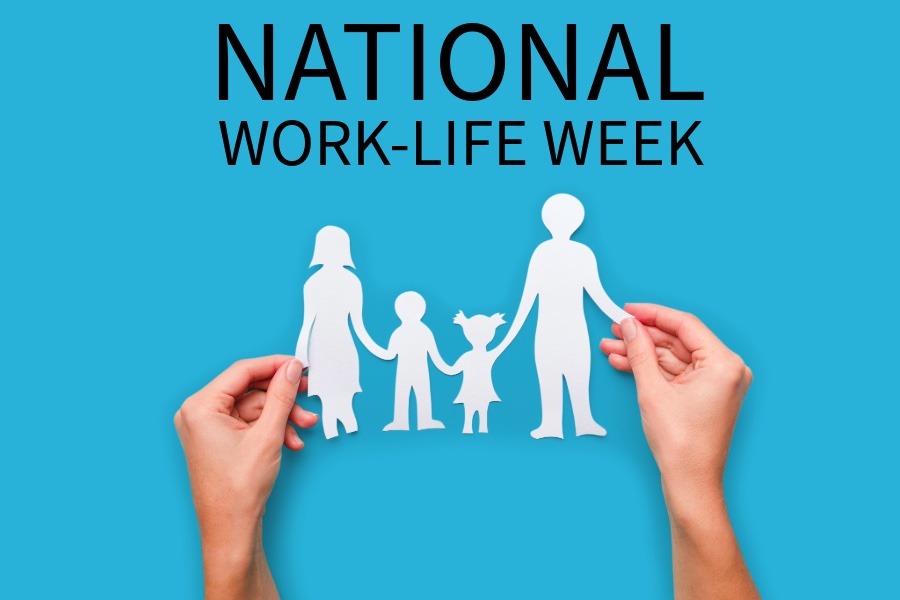National Work-Life Week, observed from October 7th to 11th, is an annual campaign dedicated to encouraging conversations about wellbeing at work and achieving a healthy work-life balance.
This week serves as a reminder for both employers and employees to prioritise family life and personal well-being, which are crucial for maintaining a productive and satisfied workforce.
The Importance of Work-Life Balance
Work-life balance refers to the equilibrium between professional responsibilities and personal life, including family time, hobbies, and rest. Achieving this balance is essential for several reasons:
- Employee Wellbeing: A balanced work-life dynamic helps reduce stress and prevent burnout, contributing to overall mental and physical health.
- Productivity: Employees who are well-rested and have time to recharge are more focused, creative, and efficient at work.
- Job Satisfaction: When employees feel their personal lives are respected and accommodated, they are more likely to be satisfied with their jobs and loyal to their employers.
- Family Priorities: Supporting work-life balance allows employees to spend quality time with their families, which is crucial for personal fulfilment and happiness.
Suggestions for Employers
To recognise National Work-Life Week and promote a healthier balance between work and personal life, employers can implement various initiatives and policies. Here are some ideas:
- Flexible Working Hours: Allow employees to adjust their working hours to better fit their personal schedules, such as starting or ending the workday earlier or later.
- Remote Work Options: Provide opportunities for remote work, giving employees the flexibility to work from home and reduce commuting time.
- Family-Friendly Policies: Implement policies that support parents and caregivers, such as parental leave, childcare support, and the ability to take time off for family emergencies.
- Wellbeing Programs: Offer wellness programs that promote physical and mental health, including fitness classes, meditation sessions, and stress management workshops.
- Encourage Time Off: Actively encourage employees to take their full vacation days and provide support for taking short breaks throughout the day.
- Create a Positive Work Environment: Foster a workplace culture that values and respects personal time, discouraging excessive overtime and promoting regular breaks.
- Recognise Achievements: Acknowledge and reward employees’ hard work and dedication, showing appreciation for their contributions and encouraging a balanced approach to work.
Further Reading and Resources
For those interested in exploring more about work-life balance and how to support it in the workplace, the following resources offer valuable insights:
- Working Families: National Work Life Week
- CIPD: Work-Life Balance
- Mind: How to Manage Stress
- ACAS: Flexible Working
Workplace Wellbeing Professional & Work-life Balance
Here at Workplace Wellbeing Professional, we truly believe in the importance of finding a healthy relationship between home and work life. Our families and personal responsibilities are important, and should never be overshadowed by pressures at work. To read content relating to work-life balance, follow the links below (with much more to be found under Work-Life Balance in the topic index):
- Ian Moore: The role HR can play in creating the ultimate work life balance
- It’s not all about pay day! Brits motivated most by work life balance
- Switching off: the importance of promoting healthy work life balance
- Charlotte Gregson: Work-life fluidity – redefining the work-life balance concept
Joanne is the editor for Workplace Wellbeing Professional and has a keen interest in promoting the safety and wellbeing of the global workforce. After earning a bachelor's degree in English literature and media studies, she taught English in China and Vietnam for two years. Before joining Work Well Pro, Joanne worked as a marketing coordinator for luxury property, where her responsibilities included blog writing, photography, and video creation.



